The Latin American Report # 199
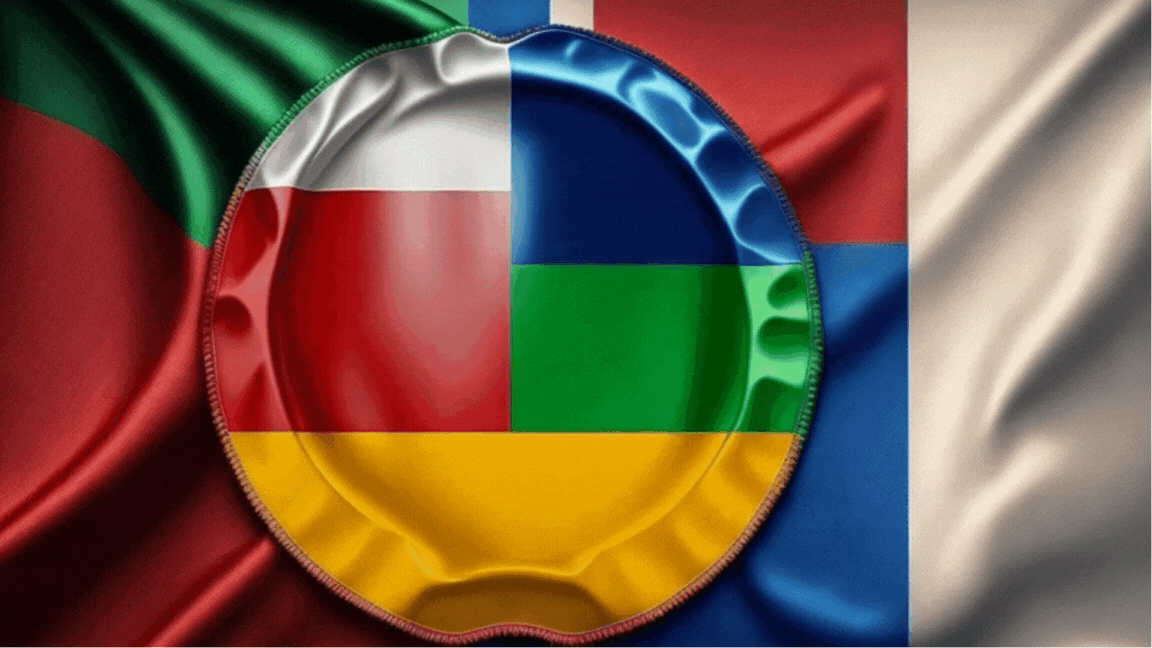
Crime Observatory
In recent hours, several violent incidents and drug seizures have been reported in the region. Take Colombia, where President Gustavo Petro denounced the attack of the Central General Staff (EMC in Spanish)—made of former FARC-EP guerrillas—against an indigenous community, alleging that the action is a violation of the bilateral ceasefire between his government and the armed group. Especially because the events occurred after Petro left a meeting with representatives of that community. In truth, no matter these efforts from the Casa de Nariño to pacify the country, the guerrillas continue to confront each other and with groups of paramilitary origin to maintain their strongholds and establish others, and continue in some cases to carry out kidnappings for tax collection purposes. The EMC attack resulted in three wounded, and appears to have been a response to indigenous attempts to find a student allegedly kidnapped by the guerrillas. The search initiative included the installation of checkpoints, where a van carrying members of an EMC column was detained, prompting the armed response.
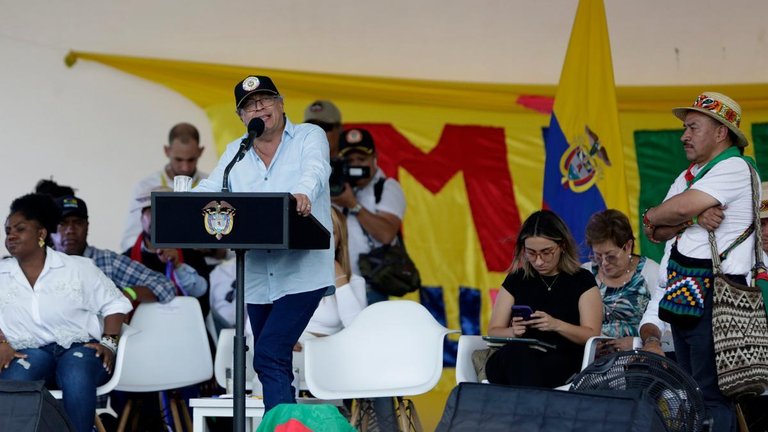 Petro (pictured) tries to pacify the country in an adverse context. He has not been able to advance several of the reforms that carry out his political agenda.
Petro (pictured) tries to pacify the country in an adverse context. He has not been able to advance several of the reforms that carry out his political agenda.Haitian police search for Barbecue
Haitian security forces had been attempting since Friday to strike a blow against the ad hoc crime syndicate formed under the apparent leadership of alias Barbecue, with some sources speaking of an undetermined number of criminals killed in the raids. The police onslaught took place in the Delmas neighborhood, where Barbecue's forces controlled five buildings. The whereabouts of the criminal boss, who had shown himself in the streets seeking support for his crusade against what remains of the Haitian political regime, were unknown at midday Sunday. Ariel Henry, a neurosurgeon who took over as prime minister after the assassination of the country's last elected president, announced that he would resign once a presidential council was installed with representatives of the country's main political groups. However, this initiative promoted by Caricom and big players such as the United States has not yet taken off. Washington went so far this week as to say that the council was very close to being elected, amid doubts as to how sovereign the solution is.
UNICEF denounced that a container with "essential items for maternal, neonatal, and child survival, including resuscitators and related equipment" was looted in the main port of the capital, and the same fate befell a Guatemalan diplomatic office, surrendered to pillage. From Foggy Bottom announce that they will facilitate charter flights from the Cap-Haïtien airport—the main one in Port-au-Prince remains closed—, although they warn that they are not responsible for the safety of those US citizens trying to arrive there. So more than 1 million Haitians are on the verge of starvation and more than 4 million are demanding food aid. WFP supplies are drying up. The program chief for the country declared himself "terrified" because there were only enough supplies for a few weeks. The drama also has the school system in ruins. Kenya has refused to send 1,000 soldiers to deal with the chaotic scenario, waiting for the presidential council is installed.
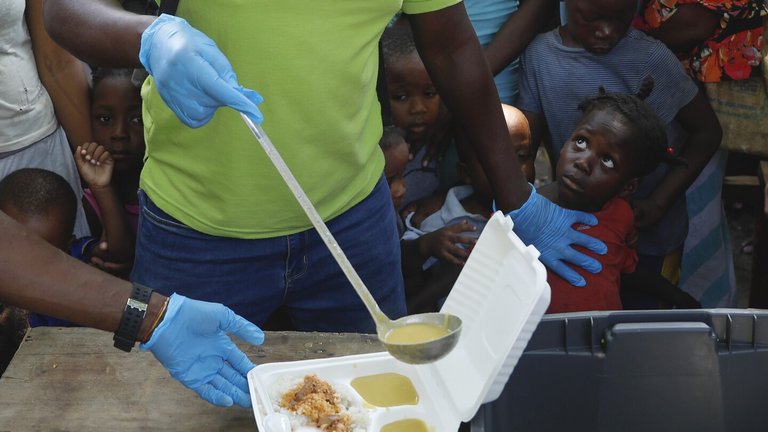 Source
SourceSeizures
Guayas, always Guayas. Authorities there reported the seizure of 600 kilograms of cocaine destined for an Italian port, with one person arrested. The illicit cargo was in a container in a port of Guayaquil (footage below), the coastal city tamed by organized crime. Another 200 packets of cocaine were seized in another operation in Imbabura, containing around half a ton. The drugs were in the double bottom of the floor of a truck whose driver was arrested. Also in Ecuador, last Friday the Armed Forces destroyed a cocaine production laboratory that could deliver 15 tons per month, each with an approximate value of US$10 million if going into the market. The most important aspect of the event is that it calls into question whether the South American nation has gone from being a mere bridge to producing considerable volumes of cocaine on its own. Meanwhile, in Guatemala, either the level of drug traffickers' activity has grown or the still very young government of Bernardo Arévalo is operating more firmly against their networks. The Coast Guard intercepted just over 680 kilograms of cocaine in the Pacific Ocean, at a point located some 145 miles from Puerto Quetzal. The Public Prosecutor's Office put the value of the intercepted drugs at around US$9 million. So far this year alone, more drugs have been seized than in the whole of last one. Also this weekend, the Colombian Navy caught a boat with more than 2 tons of marijuana, with 3 Nicaraguan nationals on board. The estimated value of the cargo was US$15 million.
MÁS DE MEDIA TONELADA DE DROGA INCAUTADA
— Policía Ecuador (@PoliciaEcuador) March 17, 2024
.@PoliciaEcuador mediante labores investigativas, en coordinación con la Dirección de Inteligencia y Operaciones de la Aduana Francesa (DNRED), se localizó, en uno de los puertos marítimos de #GYE, al interior de un contenedor con pallet… pic.twitter.com/irH5BYs5yu
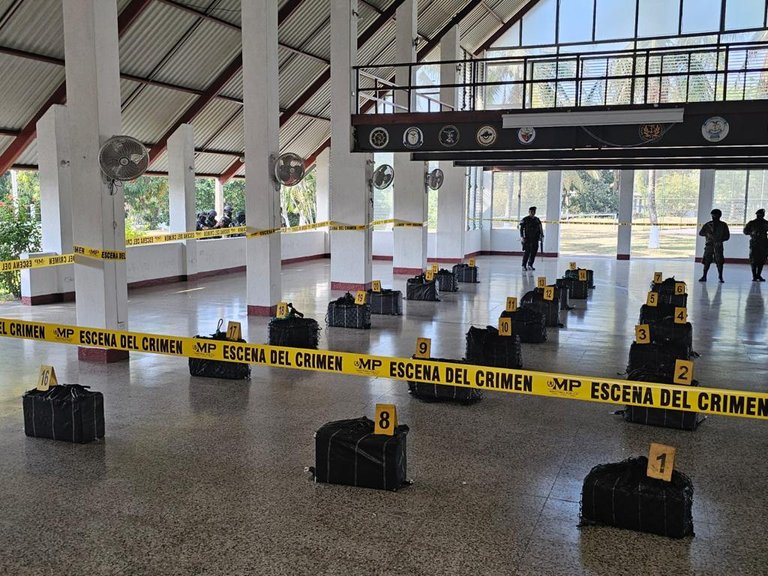 Cocaine seized by the Guatemalan Coast Guard (source).
Cocaine seized by the Guatemalan Coast Guard (source).Red Chile
Finally, in this criminal order, the Viña del Mar Prosecutor's Office has reported the murder with a firearm of two citizens, in what is supposed to be a settling of scores. Chile used to be a fairly stable place for the region in terms of security, but in recent years it has shown a worrying trend in this regard, along with other similar nations such as Central American Costa Rica. This week three murders had already been reported in the referred city in the Valparaíso region, although the victims were nationals of Colombia (1) and Venezuela (2). President Gabriel Boric, already in the second half of his term, has recognized that this is the main challenge of his administration, while there are also debts in key issues such as the pension system. Boric's tenure has also been battered by corruption scandals from people in his inner circle, such as the recently uncovered involving the director general of the police, accused of passing privileged information. Crime in the streets and corrupt police do not match.
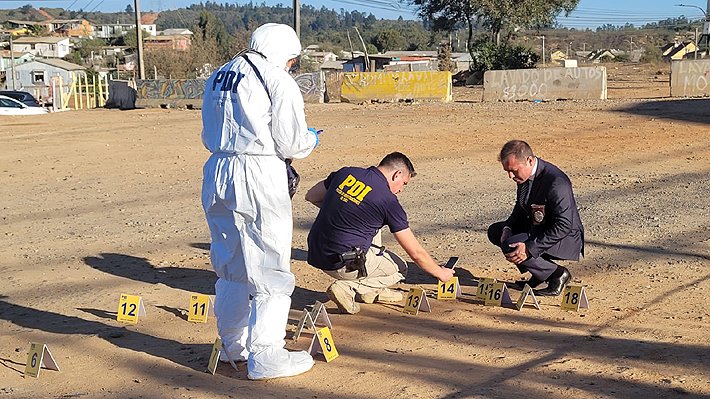 Source
SourceDark Cuba
The island continues to be plunged in a permanent blackout extended to all its geography, in an uncomfortable sample—for the citizenship—of the level of crisis experienced by the economy. The power cuts, caused by an extremely decrepit electric infrastructure, and the drop-by-drop entry of fuels from abroad, can now add up to 13 consecutive hours, which together with fierce inflation conform a rather gloomy picture for a Government on the ropes and without immediate alternatives to recover. The inadequate handling of the economic policy in the last few years, and the impact of a very harsh regime of US sanctions dating back to 1962—whose pernicious effects tend to be downplayed, relativized, if not ignored—, have fumigated the country's foreign currency reserves, so defaulting with crude oil suppliers. The shortage of dollars also compromises the critical importing capacity of the State, which has not been able to boost food production either. For this Monday, an important thermoelectric power plant is expected to be reincorporated into the national electric power system, which along with the entry of a ship with crude oil should improve somewhat the availability, but the Government has already announced that next week will be tense again once the received volume is consumed.
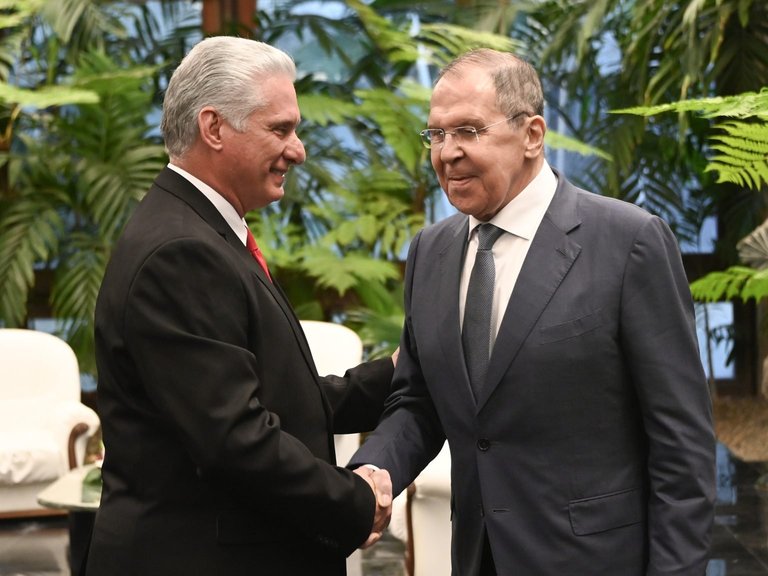 The Russian Foreign Minister (pictured here with the Cuban President) recently visited Havana, and once again promised Moscow's support in oil matters.
The Russian Foreign Minister (pictured here with the Cuban President) recently visited Havana, and once again promised Moscow's support in oil matters.And this is all for our report today. I have referenced the sources dynamically in the text, and remember you can learn how and where to follow the LATAM trail news by reading my work here. Have a nice day.

